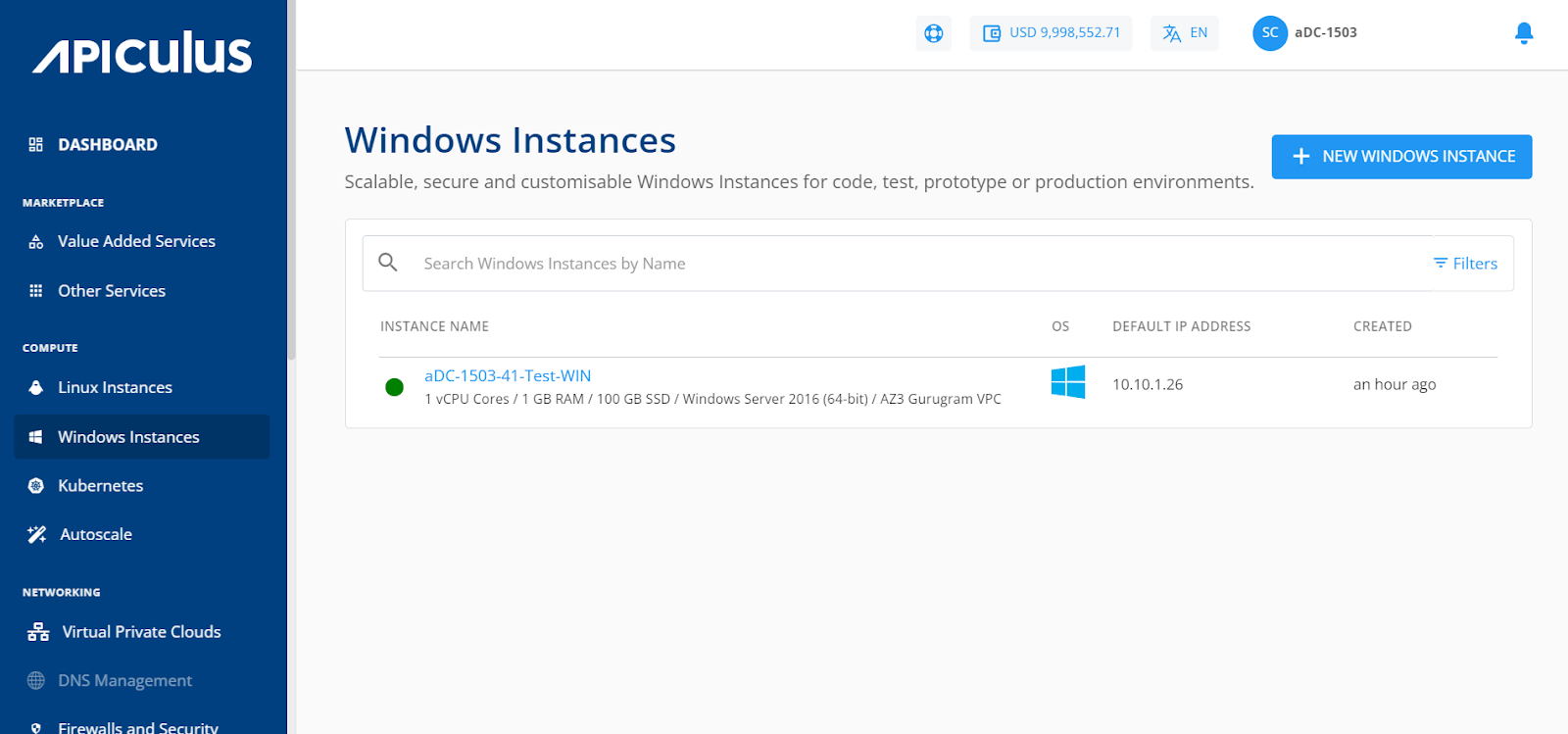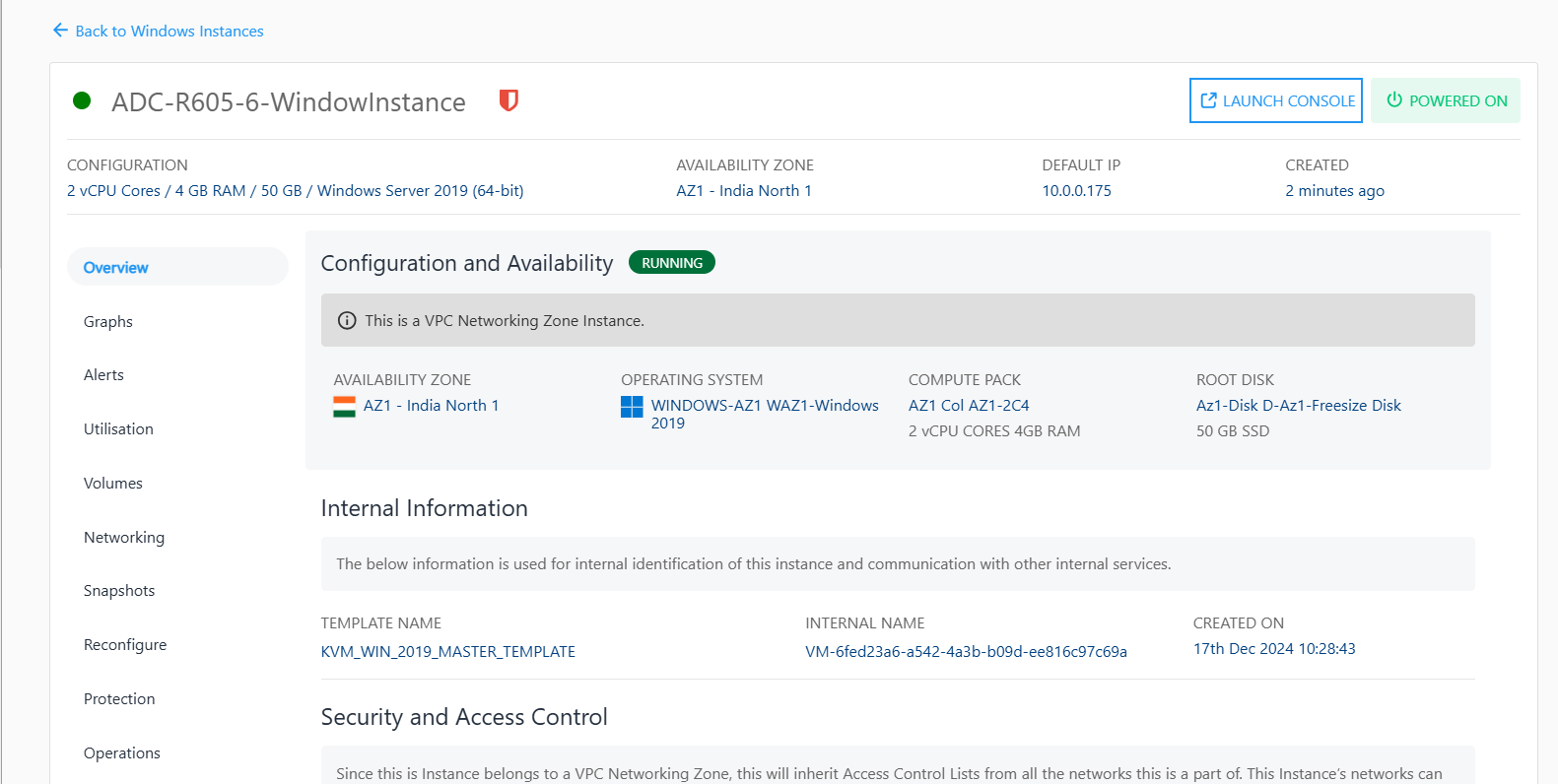About Windows Instances
Instances are computing units that provide you with resources to run your applications/workloads. Windows Instances are virtual machines that run the images of Windows Operating Systems.
Apiculus offers a highly usable and visual way of working with and operating Windows Instances using the Cloud Console. All Linux Instances available in your account can be accessed in the following way:
- Navigate to Compute > Windows Instances.
- All the Windows Instances for your account will be listed here with the following details:
- Instance Name (Along with the configuration details)
- OS- Icon
- Default IP Address
- Created

To view a list of sections and the various operations or actions, click Instance name. Below the Instance name, there is an informational view where you can find the below details:
- Configuration
- Availability Zone
- Default IP
- Created
On the top right corner, two quick options are available, one for accessing the Instance console Instance and the other to POWER OFF/ON the instance.

Details on available Windows Instance operations and actions can be found in their respective sections: